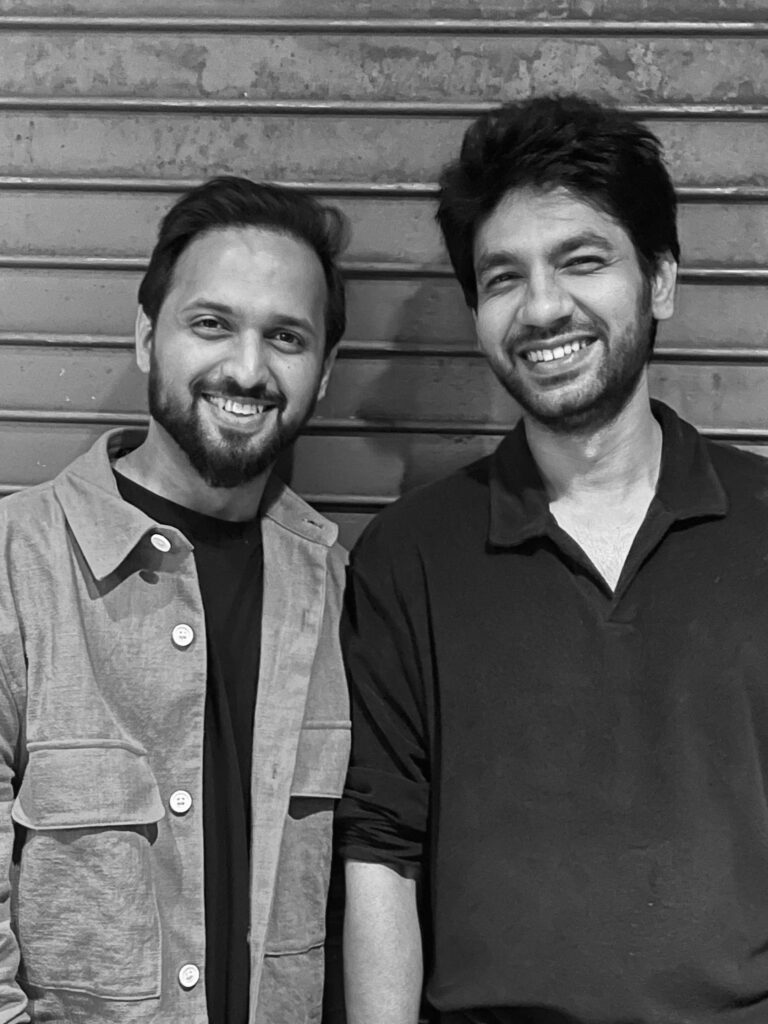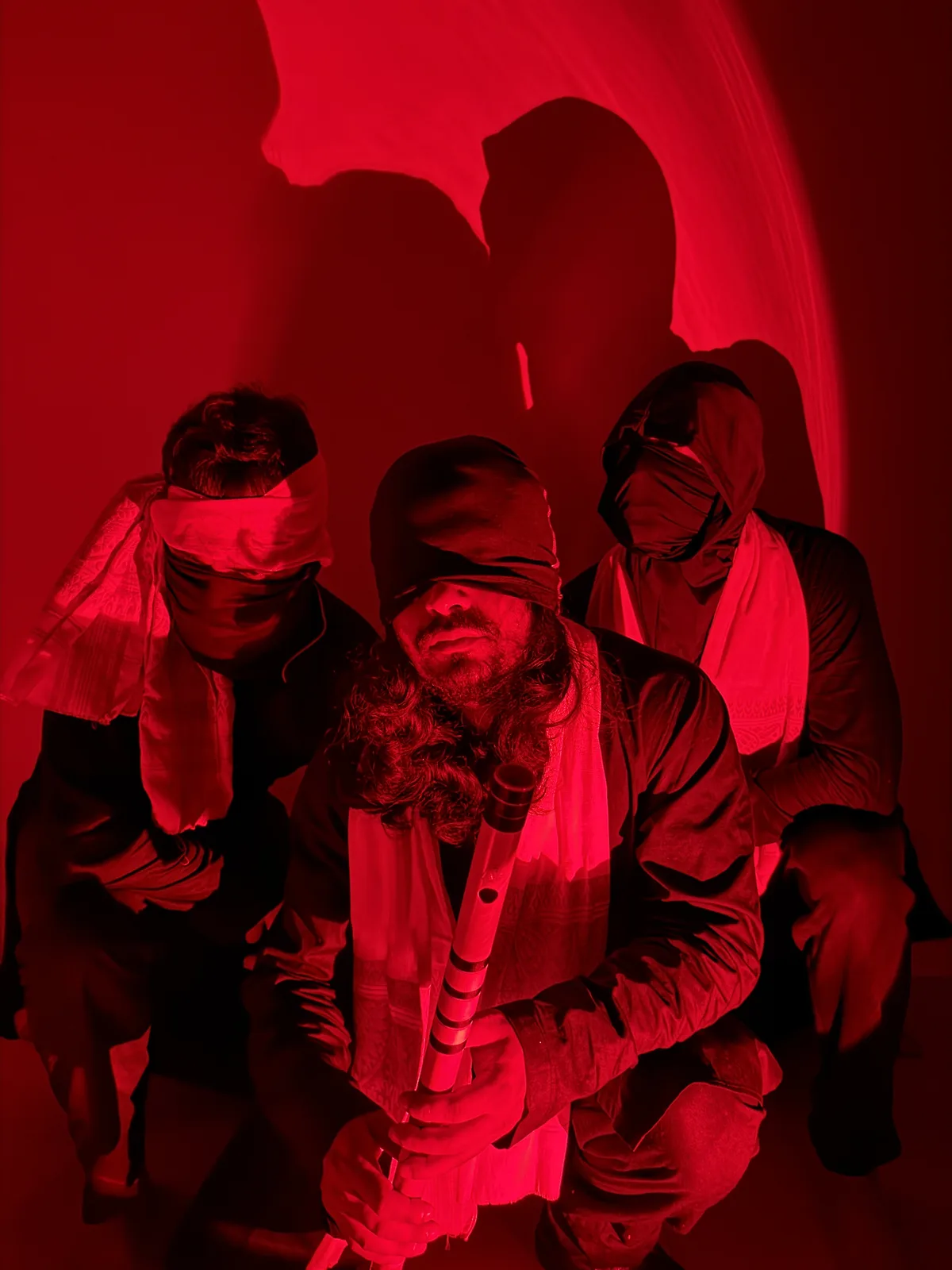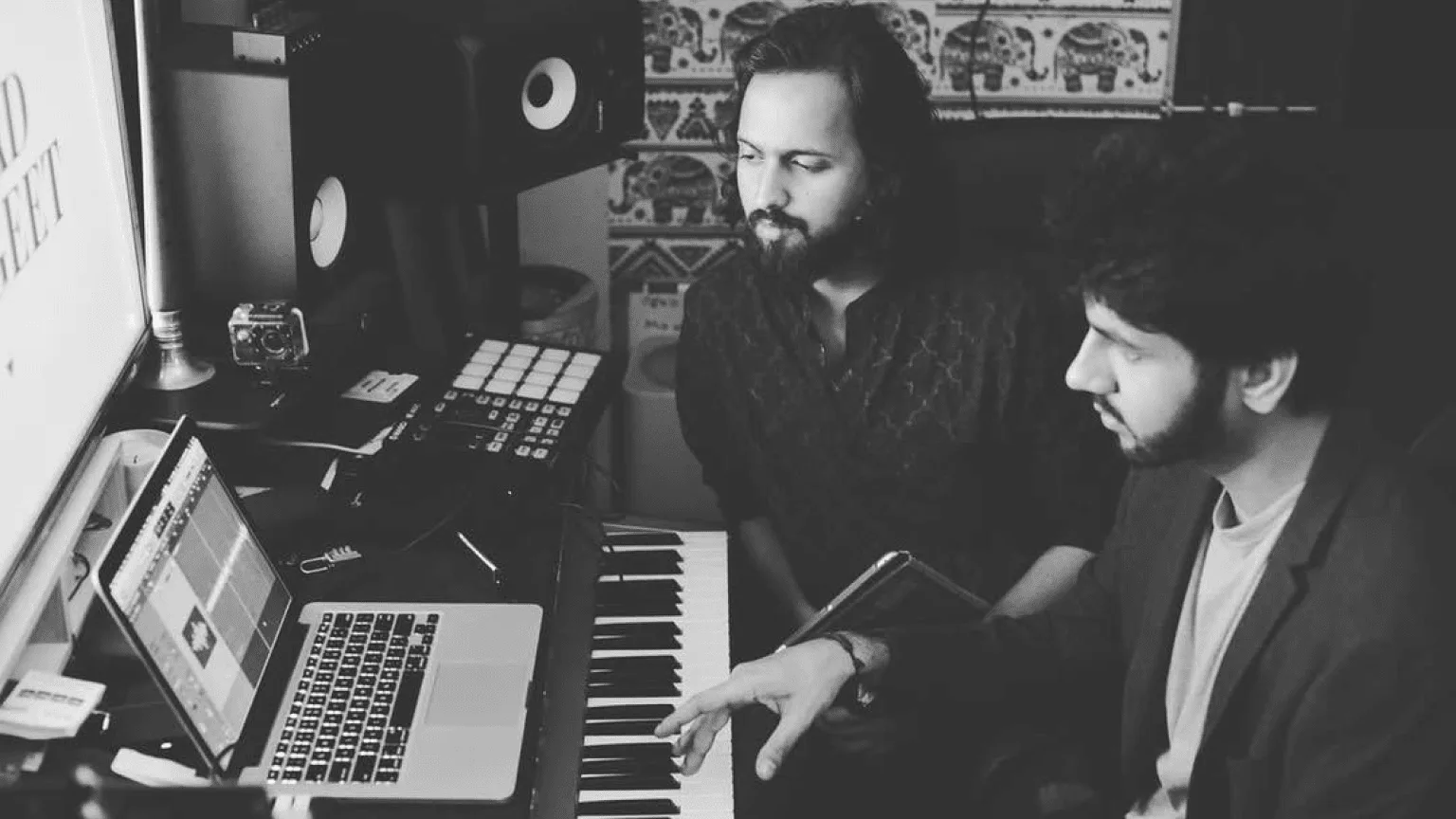On September 5th, Siddharth Pandit came out with his 3rd independent album ‘Azaad Sangeet : Season 3’. One saw, so much love around the music. Skipping through their stories, you could see how personally people had connected to the music. One could see genuine love and a sense of organic growth around the project. I rushed home, and tuned in to Spotify. I was overwhelmed by the diversity and the depth of the music for the next few hours.
The nerd in me wow’ing at the harmony and the arrangements was instantly pacified by the emotion and depth that each track channeled. It was a very introspective experience, abstracted by many other flavours of human existence, and I was left with a habit, an obsession you could say, where each day after work, like a ritual, I’d put on Beete Nahi on my Spotify, wondering if it’s gonna pop up on my Spotify Wrapped this year. The year for me personally, has been full of internalisation; and Azaad Sangeet has become the companion for those silent introspective hours. Each day, a song would travel with me as I went along with the day. For eg. The dobro guitars in Beete Nahi feel like the passage of time. As if anyone who has the slightest of belief, will fall prey to hope. Anyway, let me not digress from the main topic.
The album features 12 songs, with rich and varied production styles weaving together diverse genres, live Indian instruments coupled with intricate production, and detailed sound design. All this handcrafted music beautifully encapsulates the emotion and thought behind the poetry.
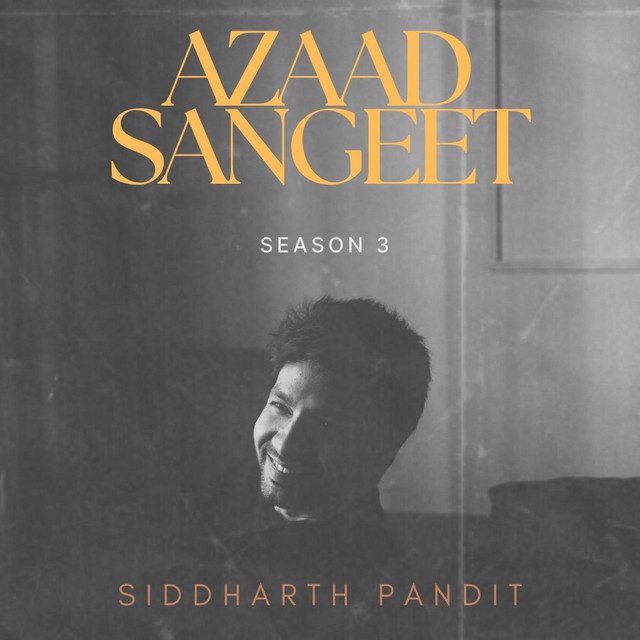
We recently got into a conversation with composer-poet duo Siddharth Pandit and Alok Ranjan Srivastava, who’ve collaborated and brought together one of the most innovative and exciting projects in the independent music space. The conversation was a deep-dive into the music of Azaad Sangeet, poetry and growth of their project from the original vision to the third season and now a wonderful feature in Amazon Prime’s latest musical web series Bandish Bandits : Season 2 !
SIDDHARTH PANDIT
Siddharth Pandit, aka Panditjee, is a music composer and producer from Uttar Pradesh whose work spans from his work across multiple web series like Modern Love, Mumbai, Faraaz, Kota Factory : Season 2 among others. His independent project ‘Azaad Sangeet’ has come a long way with songs from the latest edition of the album out now. The project experiments with musical styles and compositional ideas without being limited by the norm. Here’s an in-depth exploration of his musical works, process and the gradual, organic growth of this project.
1. Big Congratulations for the beautiful feature in Bandish Bandits Season 2! It’s a big win for Independent Music for making it’s way to the big platform that too in a musical! Can you take us through the journey of the two songs, and the experience of working on the album!
Siddharth : “Thank you so much! It’s truly a dream come true to see my independent music featured in mainstream cinema, and I’m incredibly grateful to Anand Tiwari Sir for having the vision and trusting my music for this show.
Hichki was immediately picked up by him and later revamped to fit the show’s script. The entire song was re-recorded with new variations by Swaroop Khan, and I composed an entirely fresh section that Alok beautifully wrote. Poorvi Koutish brought her magic to the song, adding another dimension to it.
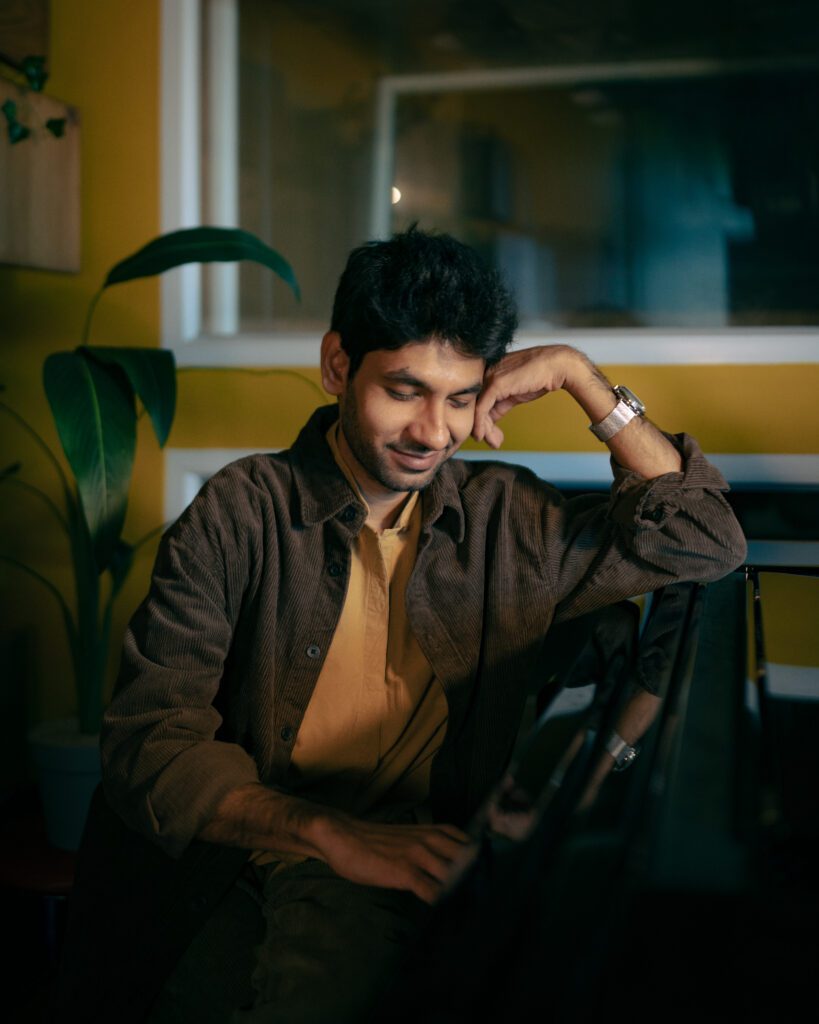
Khaamakha was originally a track I created for Azaad Sangeet Season 3. When I shared a work-in-progress version with Anand sir, he loved it, and we later developed it further to align with the show’s characters. Nikhita Gandhi became the voice of Tamannah, played by the incredibly talented Shreya Chaudhary. Creating this song was such an exciting process—it starts as a delicate lullaby and grows into an expansive ballad, exploring a wide emotional and musical range.
Both songs were an absolute joy to work on, and the journey of adapting them for Bandish Bandits Season 2 was an unforgettable experience!”
Alok : “Thank you so much! We’re absolutely thrilled to be a part of it. The director, Anand Tiwari Sir, was incredibly warm and took the time to sit with us for multiple sessions, discussing every scene in detail. This kind of collaborative music-making process is rare these days, so we were really grateful to be so deeply involved.
For Hichki, we were asked to create a folk-pop fusion. Siddharth came up with a brilliant pop section, while I focused on creating a lyrical fusion that combined the traditional, shy aspects of a woman with a more modern, bold side of her. Interestingly, Khaamakha was a track we had originally planned to release independently, but when Anand Sir heard it, he immediately asked us to include it in the album.”
2. What song from Azaad Sangeet 3 took the longest to finalise? What was the journey, from poetry to production, to recording, and challenges, if any?
No single song stood out as taking the longest to finalize, but the process of selecting the final tracks for the album was the most time-consuming. Out of the 19 songs I had created, I narrowed it down to the best 12 for the album. However, ‘Dheeme Dheeme’ was particularly demanding in terms of arrangement and production. The song had a complex session with numerous tracks, and ensuring the soul and flow remained intact was a challenge. I revised the chorus multiple times before settling on the final version, making it one of the most challenging songs to record and produce.
2. What were some production ideas and styles that you wanted to explore through the diverse and rich sound palette on the album? How was it collaborating with a diverse range of singers (including singing yourself!) on the album?
My approach is always to focus on a few key elements that are meaningful and distinctive, rather than overcrowding the arrangement. I aim to create a full, rich sound with these elements, ensuring each one stands out and speaks for itself. I also have a strong interest in blending genres in unique ways that I haven’t heard before but would love to listen to, so I create them.
For instance, in Beete Nahi, I combined slide dobro guitars with R&B-style licks and layered them over an Indian dholak percussion groove as the backbeat. In Socho, I explored a cinematic cabaret pop sound paired with a catchy chorus. For Aadhe, I blended Latin bossa nova with Hindi melodies. I strive to keep each element as authentic as possible.
Additionally, the album includes an instrumental track called Sangeet, which is a pure Paris café jazz piece I created simply to enjoy while making my morning coffee.
I absolutely loved collaborating with some incredible singers on Azaad Sangeet Season 3. Each one of them—Hansika Pareek, Vidhya Gopal, Yashika Sikka, and Rev Shergill—is a favorite of mine. I’m truly grateful that music allows me to connect with such amazing individuals. One of the highlights of this year was meeting Digvijay Singh Parihar, who inspires me deeply, both as a musician and as a person.
For this album, I also sang on six tracks. Typically, all my songs are first recorded as scratch versions in my voice, as I compose every detail and variation of the melody, which remains fixed. This time, thanks to Alok’s encouragement, I decided to retain a few songs in my own voice. Initially, I was nervous about stepping out of my comfort zone, but I realized how important it is to embrace new challenges.
I’m so glad the audience accepted and resonated with these tracks—it’s been an incredible experience to explore this new side of my artistry.
3. How can an independent artist build a community around the music and market it in this hyper-competitive music space?
I believe that staying true to yourself and your art is key to building a community. A strong community forms when people support and uplift each other. In my experience, it’s often goodwill, more than just the music, that helps foster these connections.
I’ve personally contributed to the growth of many artists by creating songs, arrangements, and mixes for them—sometimes with credit, sometimes without. It brings me immense joy to enhance someone else’s music and help them share it with the world. My philosophy has always been to encourage others to elevate their art.
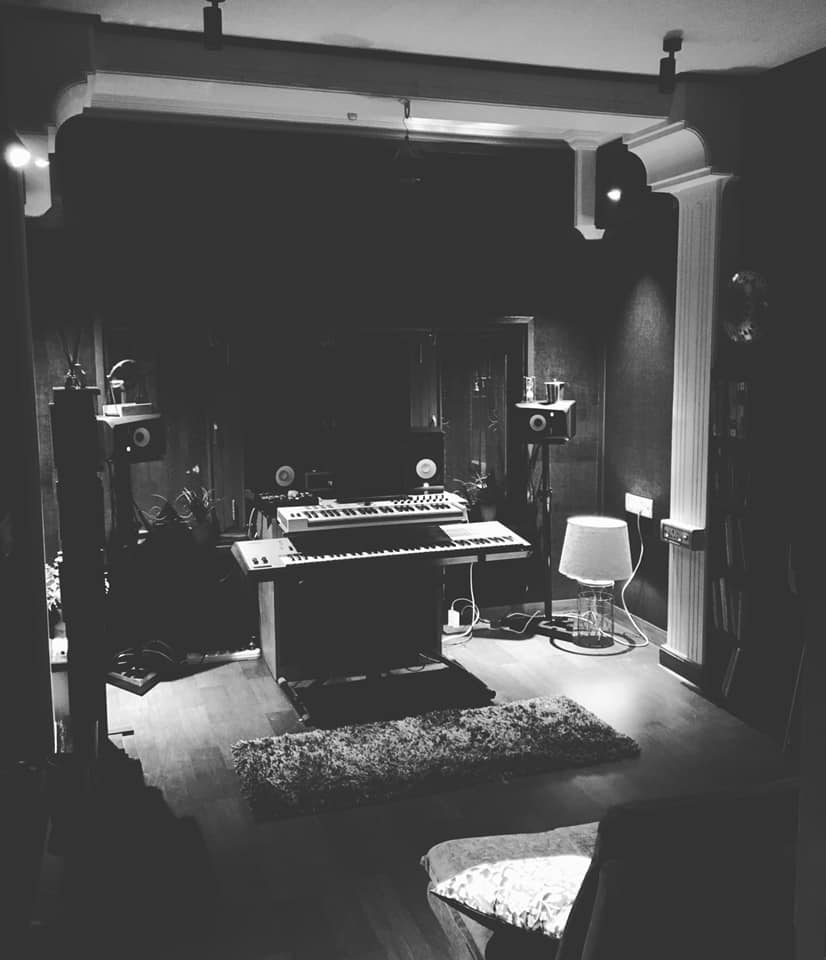
This mindset is also the foundation of Azaad Sangeet. The idea was to spotlight other artists, creating songs where they could shine even more than I do. I believe that’s why Azaad Sangeet has such a strong and authentic community around it—people who resonate deeply with its language, statement, and purpose.
4. You mentioned working on a new IP. What aspects are expected to transition from Azaad Sangeet to your live project?
Yes, I’m currently working on a new IP that carries the same soul as Azaad Sangeet, but this time it’s a deeper reflection of myself. There are so many other facets of my artistry that I’ve been eager to explore, and this project is giving me even more freedom to express them.
You can expect to see me playing the keys more during performances and embracing a quirkier, more playful side of my personality. While I can’t reveal much about the music just yet, I can share that this next album will be titled Pandit G. Stay tuned—it’s going to be something special!
5. What role does poetry play for you in terms inspiring ideas and creating impact?
Poetry is absolutely essential to my creative process. I pay close attention to phonetics and how the words naturally flow on the tongue. For me, it all begins with the soul of the song—an idea that forms the foundation for everything else. Lines like “Abhi thodi samajhni bachi hai teri duniya” from Duniya, “Roz baazaar lagaaye duniya” from Beete Nahi, “Fareeda o Fareeda” from Sar Chad Jaana, and “Ho tera mera makaan vaheen” from Makaan are all deeply rooted in this approach.
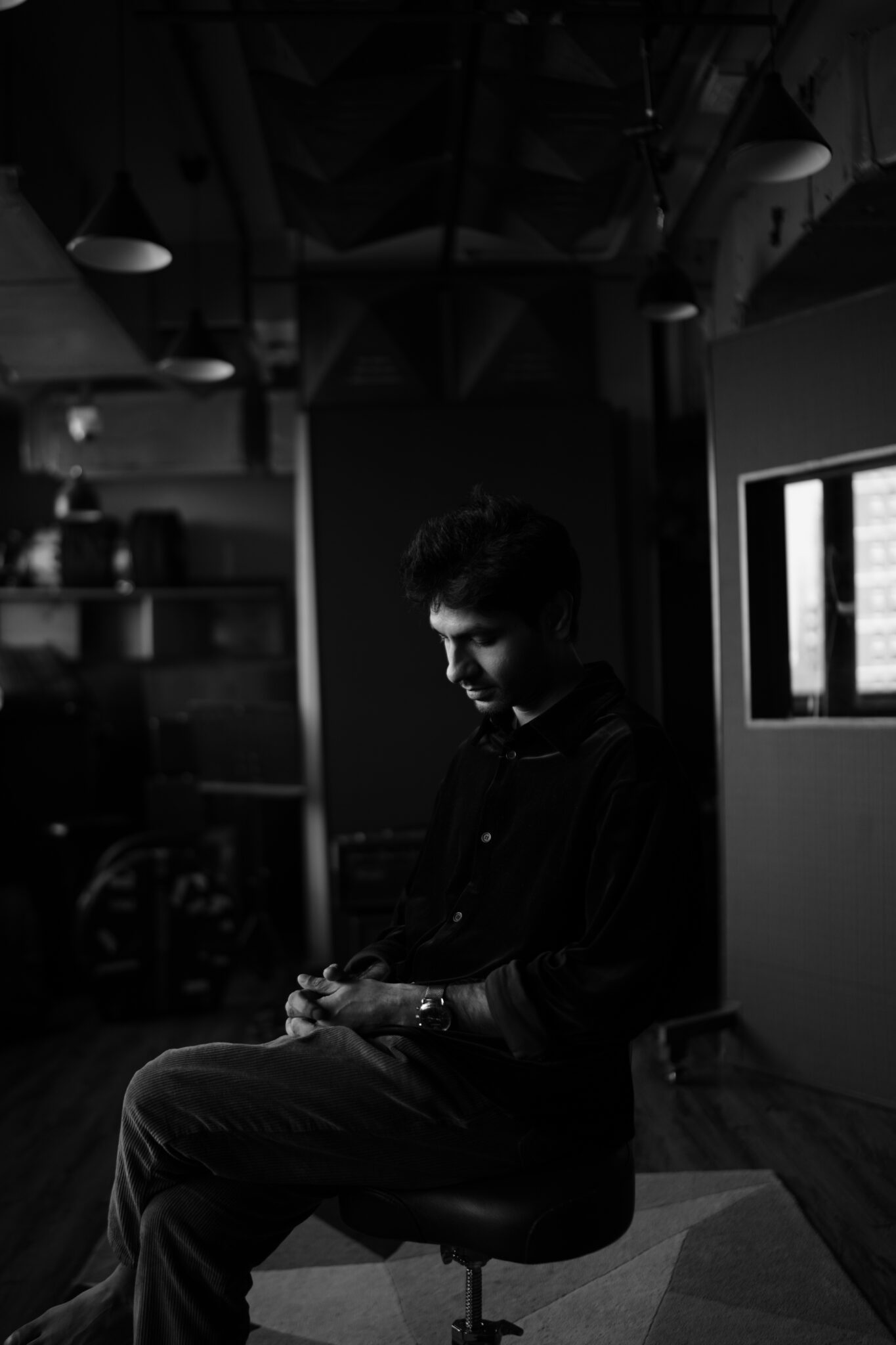
Alok plays a pivotal role in shaping these ideas into complete poetic pieces. His ability to understand what I’m trying to express is unparalleled. Our bond goes beyond music—we connect as brothers, and this shared understanding allows us to seamlessly weave poetry and melody together. Alok has a composer in him, just as I have a poet in me, and this balance helps us consistently find what works best for a song. It’s this synergy that brings the lyrics and music to life in the most authentic way.
In addition, my brother Rev Shergill is a brilliant poet and singer-songwriter. His poetry on songs like Socho and Shaayad brings a distinct and beautiful color to the music that I absolutely love. His lyrical work adds depth and emotion, complementing the melodies in a way that feels organic and heartfelt. Rev’s artistry brings a unique layer to the project, enriching the sound and storytelling in ways that resonate deeply with listeners. Both Alok and Rev bring such authenticity and creativity to their words that it’s an absolute privilege to have their poetry as part of these songs. Together, they enhance the music’s emotional landscape, making each song a complete and immersive experience.
ALOK RANJAN SRIVASTAVA
Alok Ranjan Srivastava aka Hashtag Jazbaat is singer-songwriter and lyricist with his work being featured in series like Kota Factory 2, Modern Love Mumbai, Faraaz and others; known for his long-term collaboration with Siddharth on Azaad Sangeet.
Often while listening to the albums I find myself deeply impacted by the poetry of it all, from Yun Na Jaane Kal Kab Ho… to …Sau Baras Lage Magar Saawan Aaya one experiences a world of very honest and raw human emotion. We also interviewed him on his style, some deep-dive into the themes of the album, and the independent music scene.
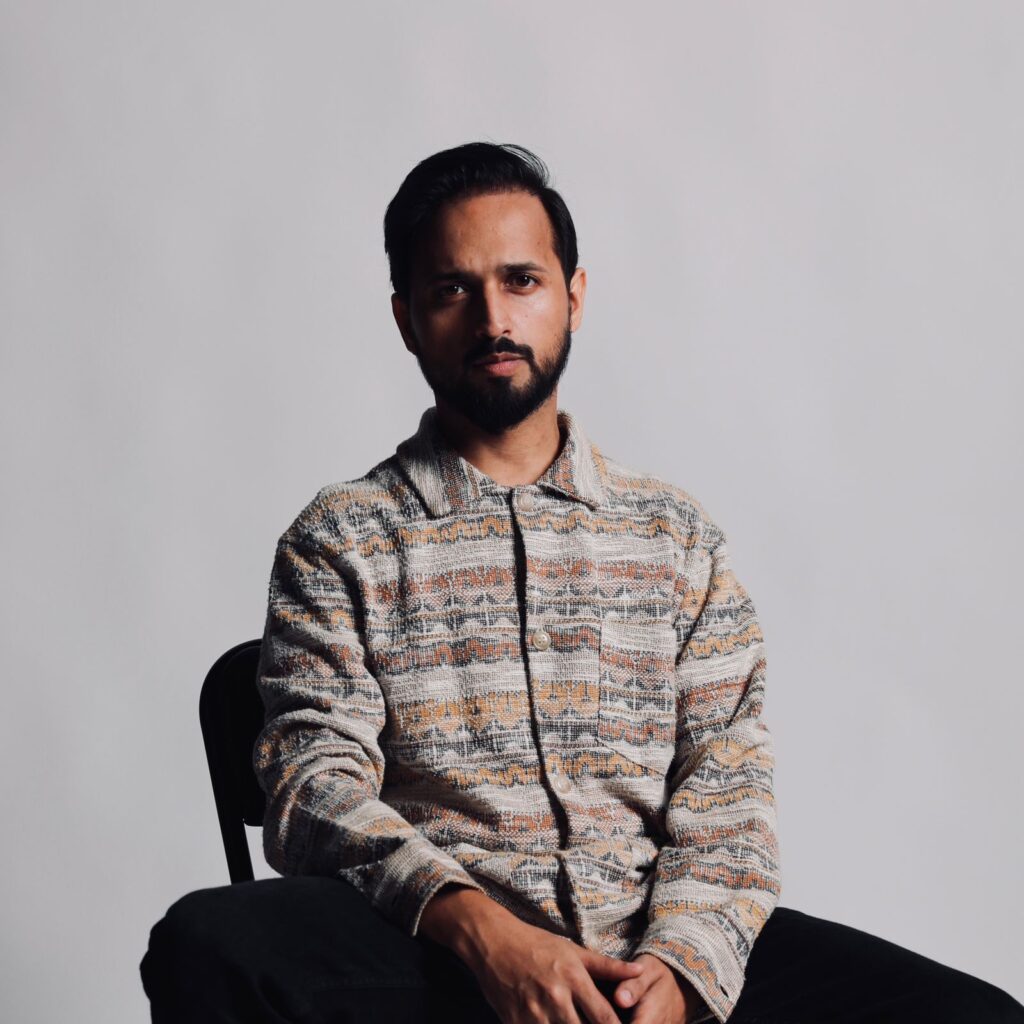
1. The poetry on the album evokes different shades of the human experience,
could you talk in detail about the poetic themes of Azaad Sangeet 3?
Since Season 1, I’ve had two guiding principles. First, I want to write songs that
can make this world a better place by encouraging people to reflect and contemplate. Second, I refuse to shy away from expressing myself honestly, even if it means exposing my raw emotional state. With these principles in mind, we shaped the themes for Season 3. While I’m happy to share the meaning behind these songs, I also encourage people to find their own interpretations—after all, art is what you make of it.
Songs like Kho Gaya, O Zindagi, and Koi Nahi reflect on society. Kho Gaya touches on several themes, including the pretentiousness of people, particularly in metro cities, where we often find ourselves questioning God, asking, “How and when did this happen?” O Zindagi offers a satirical take on the political state of the world, where speaking out against fascism feels increasingly futile, and often leads to online bullying. Koi Nahi delivers a harsh reality check about the self-centered nature of today’s world.
Like Mazhab from the previous season, Makaan may sound like a love song, but it’s really a commentary on society’s resistance to any kind of love that doesn’t fit into conventional norms—whether that’s inter-caste, inter-religion, or same-sex relationships.
Beete Nahi, Aadhe, and Hairaan are all deeply personal songs about love. Hairaan captures the pure ecstasy of falling in love—the kind that defies reason. In a world where we’re taught to be rational, it suggests that love itself is a beautiful, irrational experience. Aadhe was written for a friend who had been so hurt by a past relationship that she couldn’t trust anyone again. It’s a reminder that we’re all broken in some way, and sometimes two broken pieces can come together to make something whole. Beete Nahi reflects on the fleeting nature of time and how we should cherish every moment with our loved ones, so we have as few regrets as possible when we look back on our lives.
Awaara is, in many ways, about me. It explores the dichotomy of “falling in love too hard” and “not being able to sustain a relationship.” While it’s deeply personal, I’ve loved hearing how different people interpret the song in their own way.
Finally, Dheeme Dheeme is a song about Azaad Sangeet itself. People often ask us why we don’t release songs more frequently, but art, like nature, takes its time. Every tree, every flower grows at its own pace—and so does our artistry. That’s why my answer is always, “Nazmein toh aayengi, dheeme dheeme.”
2. How is modern lyricism different from the icons and legends of poetry this land has witnessed? Which musicians or lyricists do you admire in the current independent scene for their writing?
At its core, I don’t think things have changed that much. Poetry has always been about honest expression, and many musicians today are doing that beautifully. I also love the fresh metaphors and word palettes that some artists are experimenting with—there’s a lot of exciting creativity happening. However, one thing I think could be improved is that there is too much emphasis on individual lines in a song, often at the expense of the overall narrative. Sometimes, it feels like the focus is more on decoration than true expression. To me, a song should tell a story, and that story needs to flow naturally from start to finish.
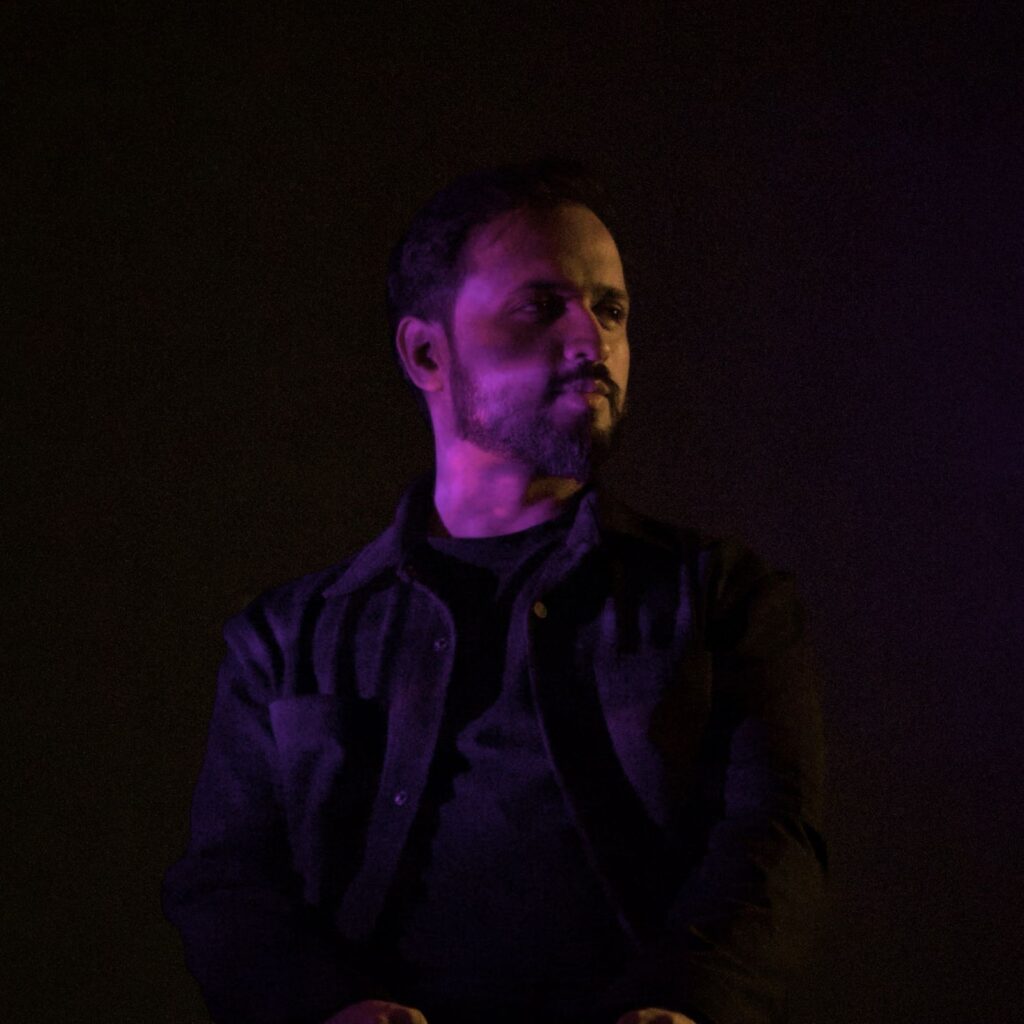
Another concern I have is the rise of incorrect meter becoming the norm. For
someone like me, the older songs were like teachers, teaching us the importance of meter and phonetics. I’m worried that the next generation of songwriters might lose sight of how crucial meter is to a song’s integrity.
That said, there are still some incredible writers in the independent scene right now. I really admire the work of Osho Jain, Sameer Rahat, Shaayra Apoorva, and Devendra Ahirwar.
3. Which song from the album is closest to you in terms of poetry? What poets, experiences, or music have shaped your sensibilities?
Honestly, every song feels like our baby, so it’s hard to pick a favorite. However,
Awaara is a track I often find myself listening to when I’m alone. On the other
hand, O Zindagi stands out as one of my most satisfying pieces of work.
4. How is the experience for new artists trying to switch careers and get into the independent music space?
It’s never been easier to get into indie music, but it’s also one of the trickiest times to get noticed. So, it’s crucial to explore your individuality, and that can only happen by continuously creating and being mindful of the quality of your work. In my five years of experience, I’ve learned that if you’re passionate enough and equipped with perseverance, you’ll find your way, including finding ways earn a living from it.
My most important piece of advice is to surround yourself with positive people. As an artist, self-doubt can take a serious toll on your mental health, and maintaining emotional stability is key. If you can do that, everything else will fall into place.
5. “Art Doesn’t Have To Match The Couch.” – Could we talk and discuss
this in relation to the vision and journey that Azaad Sangeet has completed?
Siddharth : “Art Doesn’t Have to Match the Couch” beautifully encapsulates the philosophy behind Azaad Sangeet. For me, freedom is the most essential value in life, and art and love are the truest ways to express and experience this freedom.
When I first envisioned Azaad Sangeet, my goal was to create music that was free from the constraints of trends, expectations, or the pressure to cater to what “works” commercially. I have always believed that art should first and foremost please the artist, and this has been my guiding principle throughout the journey of Azaad Sangeet.
I’ve never been concerned about whether a piece of art will resonate with the masses or achieve widespread success. What matters most to me is that when I look back on it, it feels completely authentic and true to the time it was created. Every song in Azaad Sangeet is an honest reflection of my thoughts, emotions, and creative freedom in that moment.
This ethos of staying true to myself and my art has allowed Azaad Sangeet to evolve into a space of pure, independent expression—a space where freedom and authenticity reign supreme. It’s not about fitting into what’s expected or popular but about standing tall in its own truth, no matter how unconventional.”
Alok : The name Azaad Sangeet itself reflects our core principle. We wanted to create something that was free from all external influences—free from the trends of the indie music scene, and free from labels telling us what to create. What we aimed for was pure, unfiltered expression. As Siddharth often says, “Let’s make something that we, as an audience, would love to listen to.” Although both of us are working on other exciting projects simultaneously, Azaad Sangeet feels like home. We’ll continue to release new seasons as long as we’re alive.
